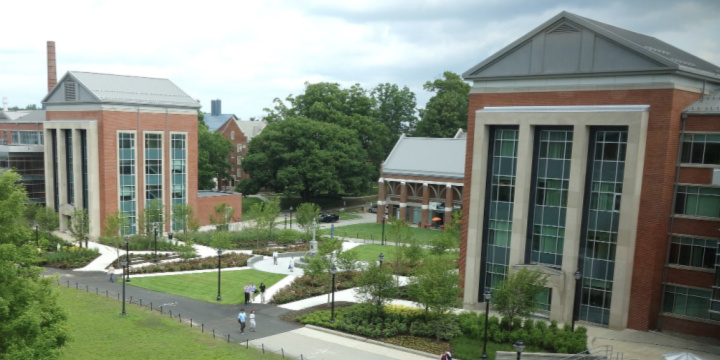 At the University of Connecticut, Acts of Antisemitism Are Also Acts of Hate
At the University of Connecticut, Acts of Antisemitism Are Also Acts of Hate
Matan S. Doron
 The University of Connecticut campus. Photo: Wiki Commons.
The University of Connecticut campus. Photo: Wiki Commons.
Hate, like many illnesses, often goes undetected until it becomes too severe to counter effectively. From a contemporary vantage point, hate is all too familiar. It is the baseless instinct that has created spaces for intolerance and violence in our communities. It is the racist ideology that continues to consciously and subconsciously inform the actions of all too many Americans. It is the loss of our humanity; the inability to appreciate and accept each other’s differences; and the moral paralysis that has struck our nation. From this vantage point, we can vividly understand why hate must be denounced in all its forms, and why we — at the University of Connecticut (UConn) — have a unique role to play in addressing hate and intolerance.
On October 7, the words “The Third Reich” were found written on a white board outside a student’s door in South Campus. Not two weeks passed before a swastika was found in the hallway of yet another residence hall in South Campus. To add insult to injury, on October 14 an anonymous post appeared on the @JewishOnCampus Instagram page alleging a UConn professor equated the atrocities of Nazi Germany with the Israeli-Palestinian conflict.
On October 25, yet another act of vandalism inspired by hate was found on South Campus, this time in Wilson Hall. And this time, in tearing down images of a kinara and menorah, the perpetrator targeted both the African-American and Jewish communities. While each one of these incidents may be isolated, they demonstrate a rising tide of hate and antisemitism on college campuses that is finally making landfall at the University of Connecticut.
The current reaction by UConn President Tom Katsouleas and his administration has been wholly inadequate. To date, the South Campus incidents have been addressed through a town hall for students of these residence halls, and a public statement released on October 30. Most of the individuals who attended the town hall were either staff, members of the Jewish community, or resident assistants on South Campus. While this virtual gathering provided a productive outlet to discuss hatred and antisemitism, it was not enough. Not to mention that the university has not responded to the allegations of the @JewishOnCampus post. The tacit acceptance of such ignorance at the faculty level represents an affront to the Jewish community. To compare the systematic, targeted murder of millions of European Jews with the bloody Israeli-Palestinian conflict is a false equivalency.
Although the university administration denounced these antisemitic actions, they did too little too late. Unfortunately, this delayed reaction follows a striking pattern of hesitation in responding to acts of hate on our campus. Simply put, our administration needs to respond to these incidences sooner. In order to do so, the university should bolster its existing response protocol to hate incidents that target other minority communities. Furthermore, the university should make public the outcome of their ongoing investigation into the South Campus incidents. Lastly, the university should muster its power as an institution of higher education, and address the dangerous misconceptions that produce hate and antisemitism. Put plainly, UConn needs to be much more transparent in its response to incidents of hate across campus.
UConn’s mission statement claims that the university seeks for each student to “grow intellectually and become a contributing member of the state, national, and world communities.” If this is to be accomplished, UConn must be outspoken in denouncing hate in all forms including antisemitism, anti-Black racism, xenophobia, and homophobia. It must educate its student body to understand and appreciate the stories of historically oppressed communities. Most importantly, UConn must ensure that course material is taught in a factually nuanced way, which addresses the full scope of perspectives.
In a July 23 message addressing UConn’s response to anti-Black racism, President Katsouleas and Chief Diversity Officer Tuitt eloquently stated that teaching and learning are what we do best as a university: “Through education and scholarship, we address the needs of our students to understand and contextualize the world around us, empower them with that knowledge, and address the misperceptions that underlie bias and bigotry.” As a member of the Jewish community, I agree; and I intend to hold the UConn administration responsible for the values it espouses. An act of hate against one faith, culture, or identity is an affront to us all. It is time for our university to be an outspoken voice for change: to educate, speak up, and speak out against antisemitism, anti-Black racism, and all forms of hate on our campus.
Matan S. Doron is a student at the University of Connecticut and on the board of Hillel. An earlier version of this article was published here.
Zawartość publikowanych artykułów i materiałów nie reprezentuje poglądów ani opinii Reunion’68,
ani też webmastera Blogu Reunion’68, chyba ze jest to wyraźnie zaznaczone.
Twoje uwagi, linki, własne artykuły lub wiadomości prześlij na adres:
webmaster@reunion68.com
